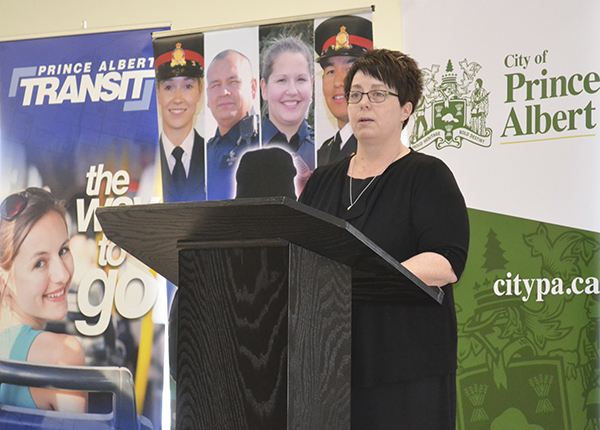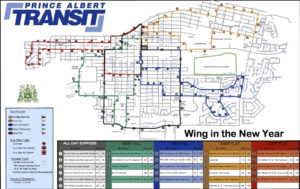
Jayda Noyes, Daily Herald
“Any accident that I’ve seen where there’s been horrific death in the city of Prince Albert, the majority, the ones I think back and recall, are the ones that have involved alcohol.” – Police Chief Jon Bergen
Saskatchewan Government Insurance (SGI) is funding free bus service on New Years Eve to prevent impaired driving.
SGI has supported the initiative—previously known as Ding in the New Year—since 1989.
It’s now called Wing in the New Year to reflect their Be a Good Wingman campaign, spreading the message of not allowing friends and family to get behind the wheel after consuming drugs or alcohol.
“Let the bus driver be your good wingman,” said Minister Responsible for SGI and Prince Albert Carlton MLA, Joe Hargrave.
As of Thursday morning, Prince Albert police have charged 114 impaired drivers this year, which is a 17 per cent decrease from 2017.
They charged 13 impaired drivers last December and two on New Years Eve.
Although the numbers are going down, Hargrave said it’s still not low enough: “Zero is the number that’s right.”
Police Chief Jon Bergen encouraged people to plan a safe ride home before the night begins.
“It is absolutely the worst experience ever as a police officer or emergency worker to have to go deliver that message that somebody’s lost a loved one because of a preventable accident and I hope that our staff never have to do that again, but the unrealistic likelihood is we will,” he said.
“Any accident that I’ve seen where there’s been horrific death in the city of Prince Albert, the majority, the ones I think back and recall, are the ones that have involved alcohol.”
The police service currently has three Drug Recognition Experts (DRE), but they have four additional positions to fill in the new year.
Prince Albert Mothers Against Drunk Driving (MADD) President, Trina Cockle, began the chapter after witnessing a collision caused by impaired driving.
In 2012, Cockle was in a vehicle travelling behind the impaired driver that caused a head-on crash, killing prominent businessman Ben Darchuk.
“That soon escalated to meeting a lot of families that have lost loved ones and so then, that surrounded sort of my thoughts around impaired driving,” she said.
When she went to her first conference, dominated by people living in Toronto, she said there seemed to be a theme of Saskatchewan having a horrible rate.
“It kind of hit me as sort of embarrassing, (but) at the same time I’m glad I’m here because if we’re the worst, then something needs to be done,” said Cockle.
She emotionally spoke about the effects of impaired driving, emphasizing the strain it puts on first responders.
“I don’t think I’ve made a speech where I didn’t have a little bit of a tear somehow,” she said.
Wing in the New Year runs from 7:45 p.m. on Dec. 31 to 3:15 a.m. on Jan. 1, including paratransit services.
Transit Manager Keri Sapsford said the amount of people who use Wing in the New Year varies on the weather.
“(Weather) adds a big factor into it, and then how well it’s promoted or anything like that,” she said. “Our biggest year we’ve had 631 people riding, our lowest we had 181 (and) 2017 was 302,” she said.
The city implemented paratransit services for the initiative in 2016, which had eight people riding last year.
–with files from the Daily Herald’s Jason Kerr


